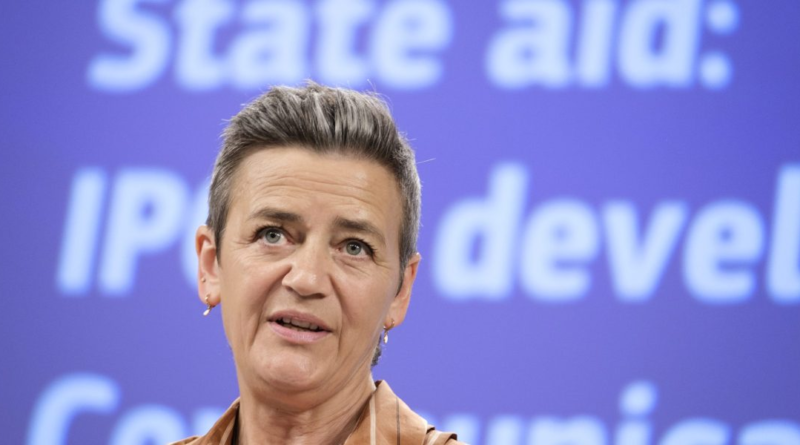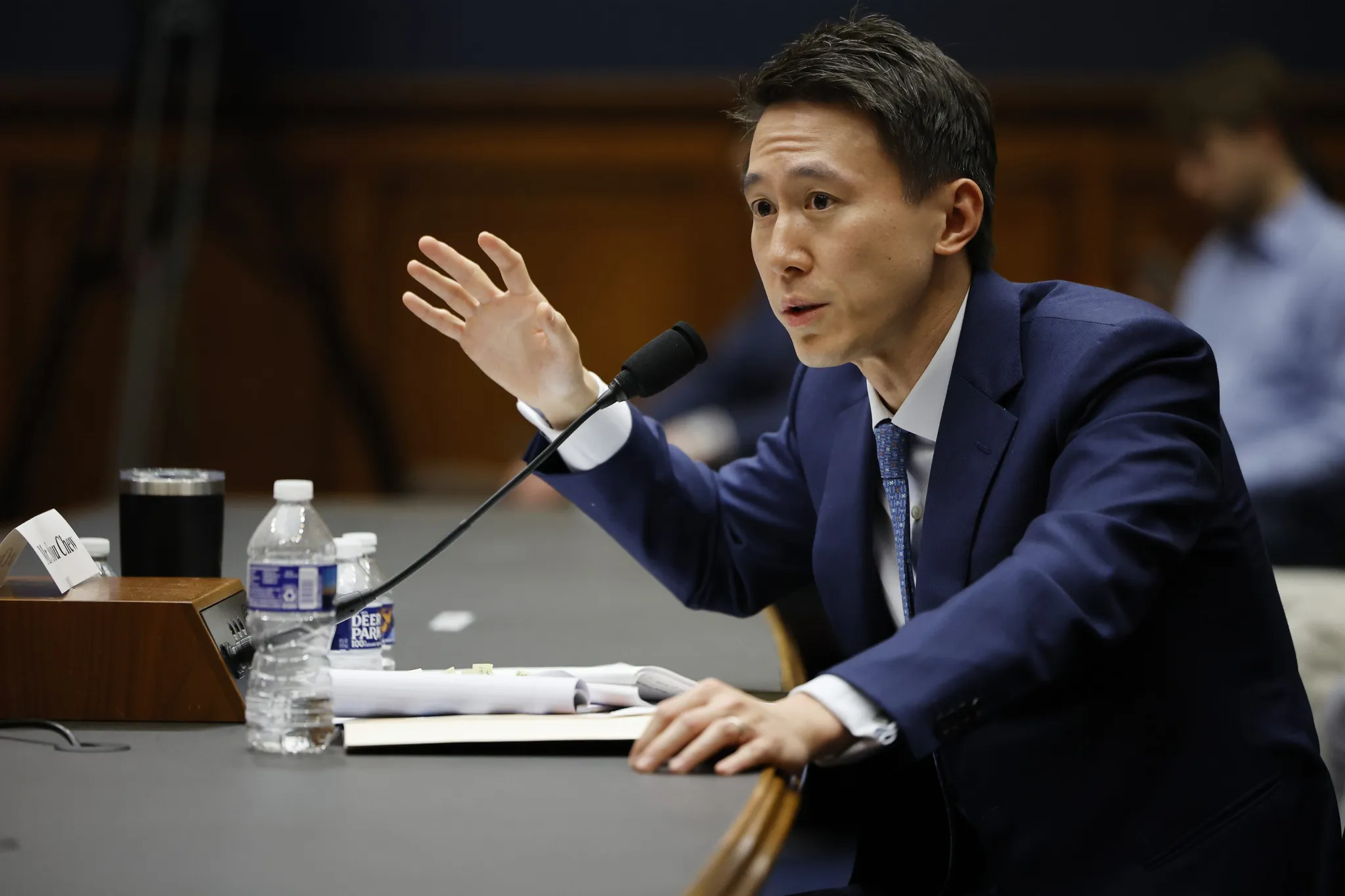The European bureaucrat who sends a chill through Big Tech just said she's looking closely at Microsoft's relationship with OpenAI. It could be a very big deal
Microsoft’s investment in AI unicorn OpenAI is a success story for the legacy tech company. The Redmond, Wash.-based giant, once seen as a tech dinosaur plodding to catch up with the likes of Apple and Google, has seen its fortunes turn since investing billions in the buzzy AI startup.
But now a reported investigation by the European Commission threatens to put that deal in danger.
The EC said Tuesday it is examining whether Microsoft’s relationship with OpenAI, which includes an investment reported to be between $10 billion and $13 billion, would violate merger regulations aimed at protecting competition in the bloc. Britain’s top regulator, known as the Competition and Markets Authority, opened a similar inquiry into OpenAI and Microsoft’s relationship last month.
The commission is “closely monitoring AI partnerships to ensure they do not unduly distort market dynamics,” Margrethe Vestager, the EC’s executive vice president in charge of competition policy, said in a statement. OpenAI did not respond to a request for comment.
Vestager is a vocal advocate of regulating Big Tech, a sector whose most influential companies continue to expand into new markets like AI while crowding out competitors in existing ones like cloud computing or digital advertising. The EC looked into a few of Apple’s practices including its iMessage system, Apple Pay, and the App Store over allegations the company unfairly excluded competitors, garnering concessions in each probe. Vestager took a particularly hard stance on Alphabet, with the EC instructing it to break up its online advertising business. (Alphabet said it will appeal the EC’s recommendation.) Vestager and her team also fined Alphabet several times over the past few years for a total of 8.3 billion euros, including imposing the commission’s largest ever single fine of 4.1 billion euros in September 2022.
The latest inquiry into a U.S. tech company indicates the EC is unlikely to pull back on its regulatory efforts. Lawmakers in the European Union seem to share that goal as well, having proposed two major sets of legislation aimed at limiting the tech industry. Companies that either don’t comply with the EU’s new laws or otherwise fail to pass regulatory muster with the commission could face fines up to 6% of their revenue or even be kicked out of doing business in the 27-country bloc.
Next week, Vestager is expected to travel to the U.S. to meet with the CEOs of tech giants including Apple’s Tim Cook, Alphabet’s Sundar Pichai, and Nvidia’s Jensen Huang. A meeting with two OpenAI executives, chief technology officer Mira Murati and chief strategy officer Jason Kwon, is reportedly also on the books.
‘The next powerful thing’
Ever since the world’s biggest tech companies released their generative AI tools to the public, Vestager has been vocal about her desire to rein in developers and implement safeguards for the public. Last May, she spearheaded a joint initiative between the U.S. and the European Union to develop a voluntary code of conduct for AI. “Generative AI is a complete game-changer,” Vestager said at the time. “Everyone knows this is the next powerful thing.”
Microsoft’s OpenAI investments come on the heels of another EC probe into the Windows maker. Last year, the commission investigated Microsoft’s proposed $69 billion merger with video game company Activision Blizzard. American and British regulators also investigated the deal over concerns that Microsoft, which makes the popular Xbox console and has a thriving cloud-computing sector that supports online gaming, would wield too much influence if it also owned a video game developer. While the deal was ultimately approved, the EC required Microsoft to grant rival companies access to Activision’s games.
Microsoft also faces an antitrust allegation from a rival tech company in Europe. German video conferencing company Alfaview filed a complaint with the EC last summer over Microsoft’s bundling of its video call platform Teams with Office.
Prior to the EC’s investigation announcement, OpenAI reportedly began a pressure campaign to water down parts of the draft AI regulations European lawmakers were developing. The law, eventually adopted in June, requires developers of general purpose AI like ChatGPT to abide by certain transparency and safety requirements.
Microsoft, in addition to being OpenAI’s biggest investor, has always had a close relationship with the startup. Those ties received close attention during the brief ouster and subsequent return of OpenAI CEO and cofounder Sam Altman. Microsoft was blindsided by Altman’s firing, reportedly learning about it only a minute before it was announced publicly, and the episode raised questions about OpenAI’s obligations to its largest investor as well as its opaque and unusual corporate structure. OpenAI is structured as a nonprofit, with a for-profit subsidiary that develops ChatGPT and AI image generator DALL-E, and which Microsoft has invested in. The ensuing turmoil strengthened Microsoft’s position as it successfully pushed for the return of Altman, its preferred CEO, and secured a nonvoting board seat.
When reached for comment about the EC’s announcement and its relationship with OpenAI, Microsoft replied: “Since 2019, we’ve forged a partnership with OpenAI that has fostered more AI innovation and competition, while preserving independence for both companies,” a Microsoft spokesperson told Fortune. “The only thing that has changed recently is that Microsoft will now have a nonvoting observer on OpenAI’s board.”




